Autodesk 3ds Max works well with Alias for creating photorealistic renderings and animations from design data, and for creating polygon-based geometry for integration back into Alias scenes.
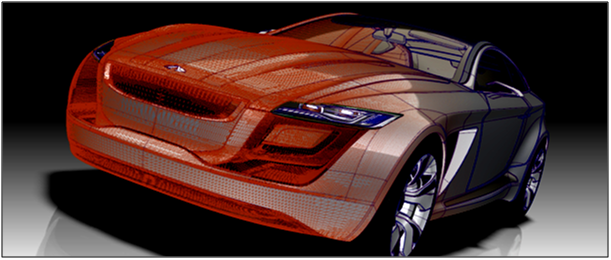
Alias to 3ds Max Workflow
The workflow fromAlias to 3ds Max provides high-end rendering and animation for final design visualization, and the option to use existing Alias design data for reference in 3ds Max.
Use Alias for form exploration and shape definition, then open the final Alias .wire file in 3ds Max for enhanced visualization.
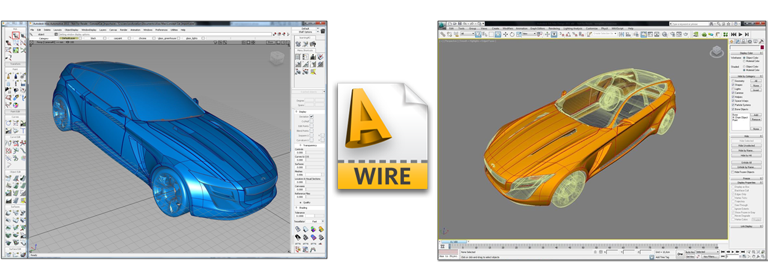
- Prepare and save the Alias .wire file. Tip:
- Layer symmetry is not supported in 3ds Max. Choose Layers
 Symmetry
Symmetry Create Geometry to create geometry from symmetric layers before saving the .wire file.
Create Geometry to create geometry from symmetric layers before saving the .wire file. - If the data is intended for reference in 3ds Max, pick the objects for reference and choose File
 Export
Export Active As.. and import only this data into 3ds Max.
Active As.. and import only this data into 3ds Max.
- Layer symmetry is not supported in 3ds Max. Choose Layers
- Import the Alias .wire file into 3ds Max.
Choose File
 Import and choose the Alias .wire file prepared for import. Note: 3ds Max 2012 can import Alias .wire files with these limitations:
Import and choose the Alias .wire file prepared for import. Note: 3ds Max 2012 can import Alias .wire files with these limitations:- Only NURBS surfaces and basic shader data are imported. Other entities such as polygon meshes, curves, lights, image-based shaders and lights, are not supported.
- The hierarchy of the Alias scene is preserved, however layer assignments and special nodes are not.
- The names of objects in the scene are preserved up to the limits of 3ds Max object names.
- Replace Alias shaders with 3ds Max materials, and use the advanced rendering features of 3ds Max to achieve a photorealistic output.
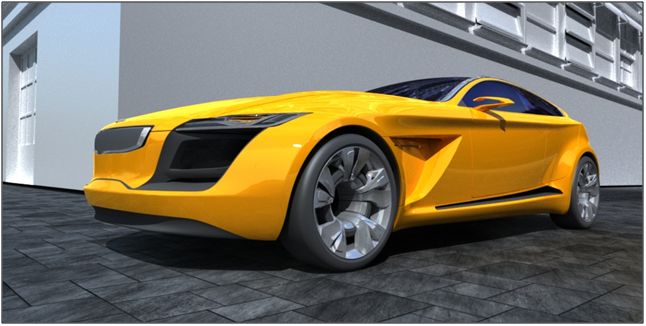
- Alternately, use the imported Alias geometry as reference for concept modeling within 3ds Max.
3ds Max to Alias Workflow
The workflow from 3ds Max to Alias provides the option to use polygon geometry from 3ds Max within Alias for reference and quick concept development. 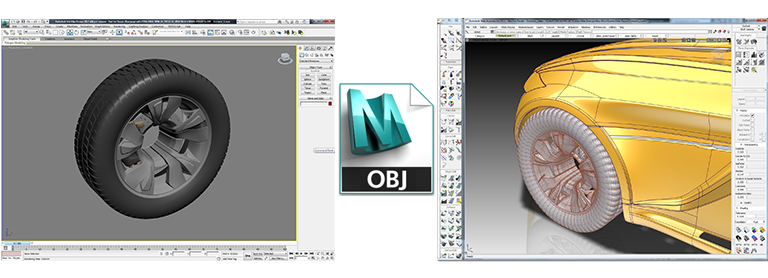

- Prepare the 3ds Max geometry data for export. Tip:
- All exported geometry will be converted to polygons, so consider converting non-polygonal geometry to polygons to insure the same fidelity of data when brought into Alias.
- Export the 3ds Max data as an OBJ file.
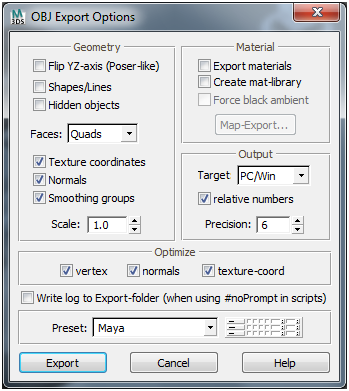 Note: The OBJ file format has the following limitations:
Note: The OBJ file format has the following limitations:- All exported geometry is converted to polygons, regardless of whether they are NURBS, subdivision surfaces, or other surface data types within 3ds Max.
- Special 3ds Max scene entities such as effects, environments, layers, and modifiers are not supported in the OBJ file.
- Alias cannot read all supported data found in the OBJ file.
- Import the OBJ file into Alias.
Choose File
 Import
Import File... and choose the OBJ file exported from 3ds Max.
File... and choose the OBJ file exported from 3ds Max. 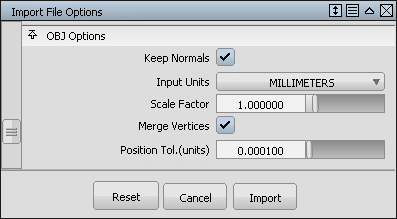 Note: Alias can import an OBJ file with the following limitations:
Note: Alias can import an OBJ file with the following limitations:- All exported geometry is imported as a single object. If multiple objects are desired, export each object separately.
- Other non-polygonal entities within the OBJ file, such as curves, lights, materials, and animation, are not supported in Alias.